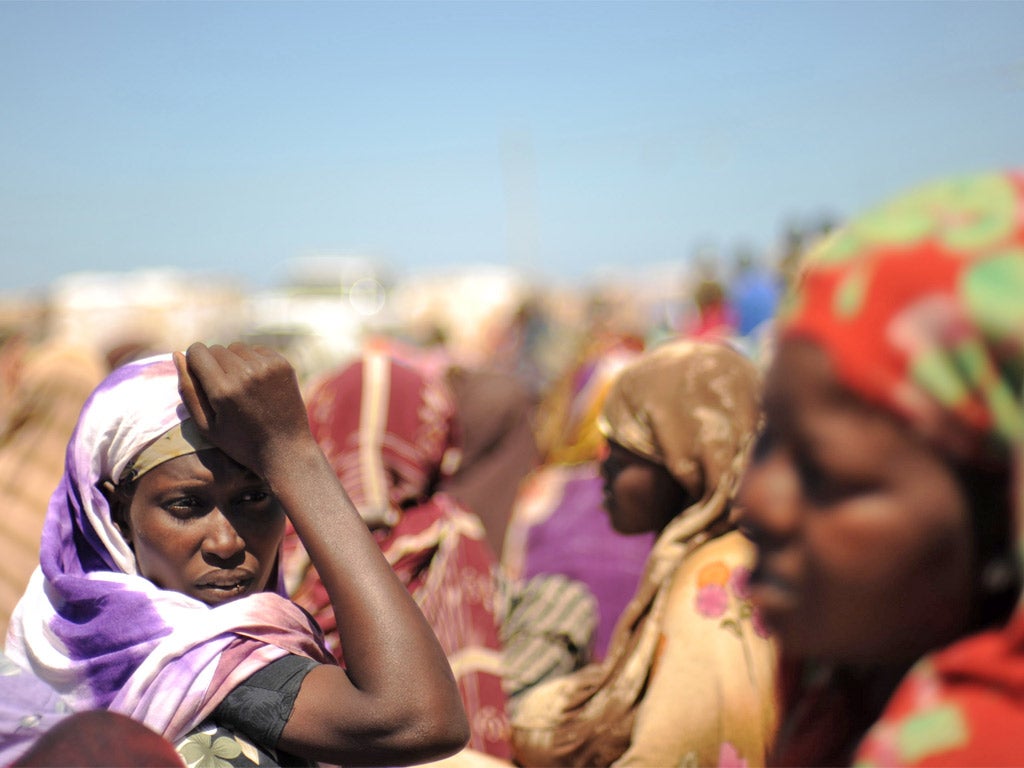The importance of health care: Blind choices
Many women in developing countries don't realise that they have a right to healthcare and to make decisions about their own bodies. This has to change, says Edna Adan ssmail

Your child is sick, but you need your husband's permission to buy medicine. You need his permission to attend a health clinic, or to do anything to help your child feel better. Or: you have a serious health problem and have been told that pregnancy may be fatal. Contraception could save your life, but under pressure from your family, you are forced to avoid it. What about if you desperately needed an emergency Caesarean to safely deliver your child? Your husband gives permission. But the doctor is unable to operate – your father refuses.
In my home country of Somaliland, I have witnessed these life-threatening scenarios happen time and time again. I have been forced to call a police officer to witness the refusal of a male relative to give permission to operate on a dying woman.
When talking about improving health care, it is paramount that local traditions are taken into account. In some cultures, including mine, women cannot make their own decisions about medical care, even in emergencies. And in Somaliland, as in other parts of the developing world, women don't wish for greater access to health care because they do not know that it is, or should be, available. One cannot miss what one has never had.
Just as most women in the United States would never dream of giving birth without the help of skilled professionals, in many cultures women cannot imagine anything other than giving birth at home assisted by female family members, or the old women of the village, as it has been for generations. Due to lack of social and economic empowerment, women often under-utilise existing health-care resources.
Improving women's access to health care will involve much more than lowering costs, improving transportation, or opening more clinics. It is a matter of changing people's outlook. One of the first steps is to raise awareness that health care is both a right and a necessity. Women should recognise it as a priority and demand greater access. They should demand this from their countries, from their communities, and from their families. If women remain content to go without antenatal care and to give birth under unsafe conditions, then there is no incentive to provide them with better access and infrastructures.
Ignorance is the enemy of health care. People tend to fear the unknown and, to the uneducated, that's the world of medical science. In countries where education is not freely available, the health-care profession is looked upon with suspicion. Having watched women give birth at home for generations, people naturally question the changing of traditional practices. Only by opening the minds of women through education in the health sciences will we help them understand the value of pre-natal checkups, breastfeeding, immunisations and other care that women in the developed world take for granted.
We must improve education. In Somaliland, the majority of young women cannot read or write, let alone understand concepts such as the human reproductive system, the transmission of sexually transmitted diseases, or the dangers of poor sanitation. Improving access in countries such as mine is a problem of great magnitude. It cannot be improved simply by spending more money to build a "clinic". The problem can be solved only through dedicated and systematic efforts to empower women, to change the way they see themselves, and to train more midwives.
Edna Adan Ismail is a nurse-midwife, UN diplomat, and former Foreign Minister of Somaliland. She will be speaking about women's access to health care at the Trust Women Conference in London today (trustwomenconf.com)
Subscribe to Independent Premium to bookmark this article
Want to bookmark your favourite articles and stories to read or reference later? Start your Independent Premium subscription today.

Join our commenting forum
Join thought-provoking conversations, follow other Independent readers and see their replies